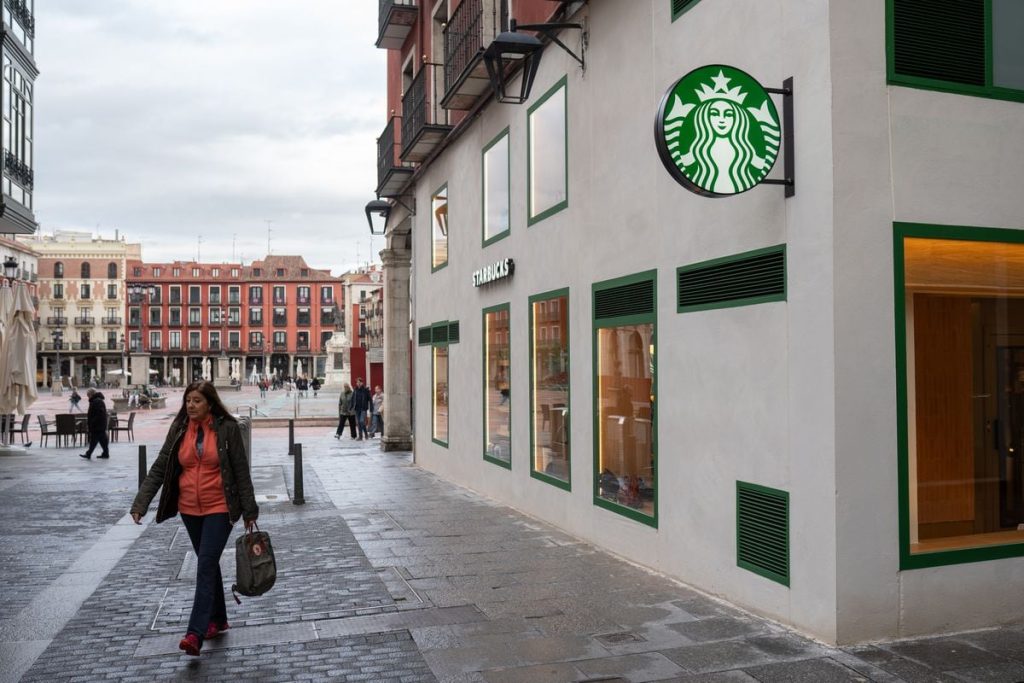Count Ansúrez has plenty to choose from. The founder of Valladolid, immortalized in sculpture in the Plaza Mayor, can travel thousands of kilometers through franchises. As a starter, some Japanese ramen; for the main course, some Mexican burritos; for the main course, an American-style Whopper burger; for dessert, some “manolitos” like those in Madrid; at the end, a very Instagrammable frappuccino. The epicenter of Valladolid, with a sober Herrerian style, has lost traditional businesses in favor of homogeneous chains, equally recognizable in New York, Beijing, or the Castilian plateau. These businesses are replacing historic stores that have closed due to a lack of demand or high rents.
The City Council, for now, remains oblivious to these internationally identifiable corporate colors and neon lights. The square, considered the oldest in Spain, was established in 1561 after a terrible fire that changed the development of the city. Since then, these arcades have housed various establishments, ensuring a very disrupted economic activity in recent years. The imminent opening of an Asian food franchise and another burger joint adds to the recent opening of a Starbucks, once reserved for metropolises and now expanded to provincial capitals. Meanwhile, a historic hardware store that had been operating for 130 years closed down due to lack of generational continuity.
Teresa Rodríguez and Ana Alberdi, both 65 years old and native to Valladolid, strongly oppose the trend of chain stores taking over traditional businesses. They recall old businesses that have been replaced by modern establishments. They express concern about the loss of local commerce, blaming rising rents and changes in social consumption patterns for the decline of small businesses. Despite the arrival of foreign chains, they make a conscious effort not to support these invaders, preferring to patronize local establishments. The closure of traditional businesses is a point of contention for many locals, who see it as a loss of the city’s identity.
The Councilor for Urban Planning, Ignacio Zarandona, attributes this change in the commercial landscape to changing times and the weakening of traditional commerce. He believes that the arrival of iconic franchises is not a concern, as they can bolster local businesses, and it is unusual for a city like Valladolid not to have a Starbucks. While some residents prefer more local businesses, others acknowledge the benefits of increased economic activity from chain stores. The generational gap between supporters and opponents of the expansion of franchises in Valladolid is evident in the conversations between residents and the local authorities.
The impact of chain stores on local businesses is a pressing issue for many residents. While some view the growth of franchises as inevitable, others lament the loss of small, traditional establishments. The imminent opening of a McDonald’s near the Plaza Mayor is a cause for concern for some locals, who fear the further homogenization of the city’s commercial landscape. Despite these changes, some establishments, like the classic café Lion d’Or, retain their unique charm and appeal to a different clientele, preserving a sense of tradition in the face of globalization. The ongoing transformation of Valladolid’s commercial district reflects broader trends in urban development and consumer preferences.


